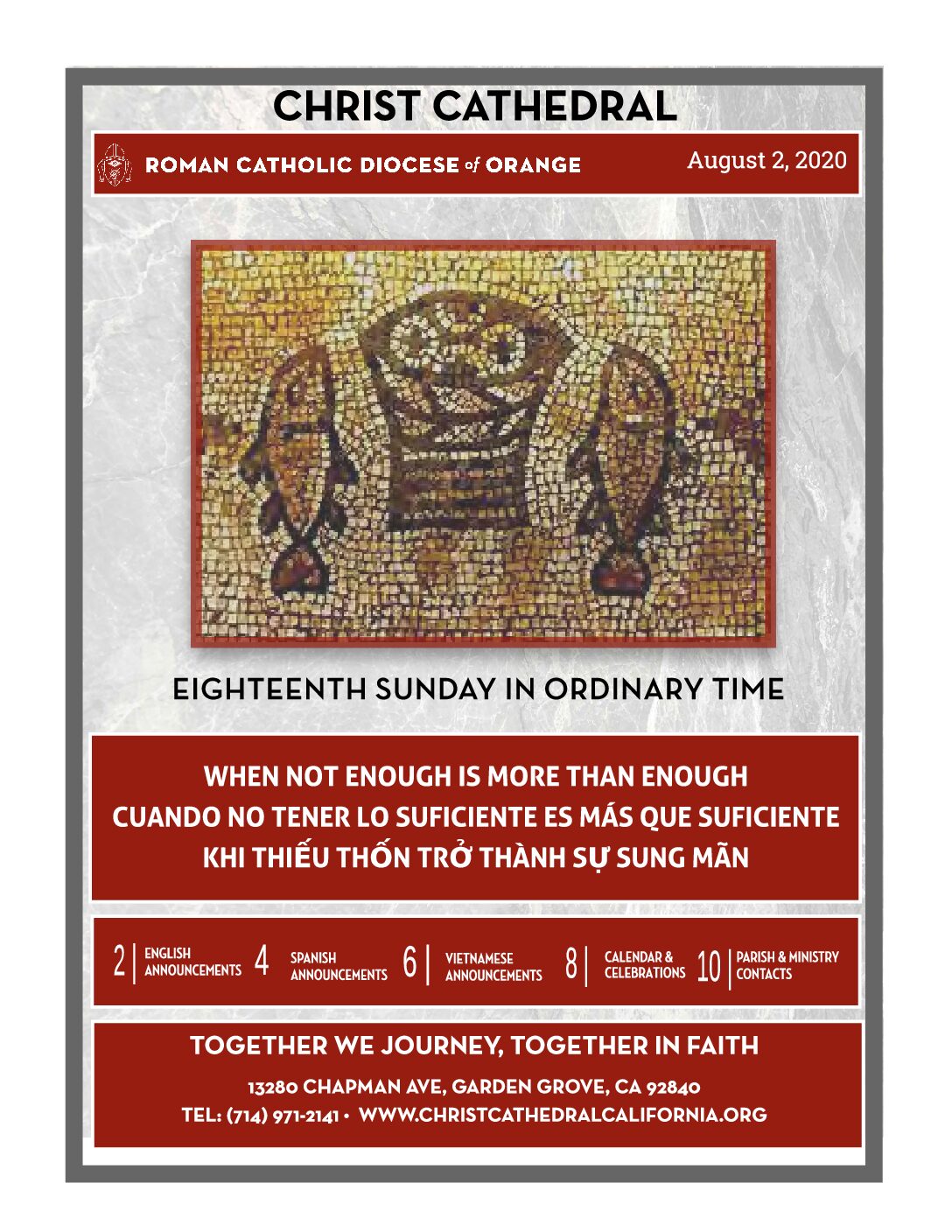In these days of the pandemic, there have been accounts of many shortages. In some places there are not enough medical workers, hospital beds or medical equipment. Many are reporting not enough money because of the loss of jobs or the closure of businesses. The lists of what there is not enough of are many and long. When there is not enough, panic can set in. What are we going to do? How will we survive? What is to become of our family? Feelings of insecurity run very high. Uncertainty about the future is unsettling.
In the Gospel story there is not enough food to feed the thousands that are gathered to listen to Jesus (Matthew 14:13-21). Lacking enough money to buy food for the huge crowd, and seeing that the only food in sight are five loaves of bread and two fish, the situation looks dire. It is at this moment that Jesus turns the situation of “not enough” into a scene of more than enough. He sees in the five loaves and two fish a huge feast and says thank you to his Father. Out of that gratitude came plenty of food to feed everyone. In fact, there is more than enough, as twelve baskets of leftovers are collected.
We certainly need to address the shortages that are doing harm and causing hardship. The story of the loaves and fishes reminds us that what we do not have is not the whole picture. As Jesus cared for the people when it seemed there was not enough food, his care is also with us. His care does not mean we will never experience hardship or pain. It does mean that if we are open to letting him strengthen and guide us, we will find meaning through the hardship. For example, many people, myself included, have said that as difficult as these times are, there has been a newfound appreciation for what we do have, as so many things we took for granted are not available to us. These are the times to acknowledge what we have and say thank you. It was Jesus’ gratitude to his Father for five small loaves and two scrawny fish that the abundance of more than enough food emerged. We do not all have the same things, and we all have something. Jesus invites us to live each day, not from the scarcity of what we do not have, but from the abundance of what we do have.
The many shortages we face these days can tempt us to think we will never have enough of what is needed for a healthy, peaceful humanity. It can look like two tiny fish and five little loaves to feed thousands. Remember that day on a hillside long ago when not enough became more than enough. Our thank you today can do the same.
Together in faith,
Very Rev. Christopher H. Smith, Rector
